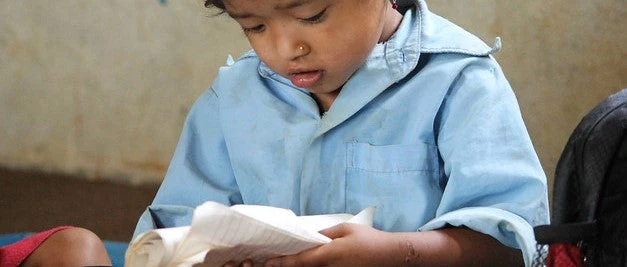 ECD
ECD
The COVID-19 pandemic has led to school closures in nearly every country in the world, putting approximately 1.5 billion children and youth out of school. For many countries, a learning crisis existed before the coronavirus pandemic, with an estimated 260 million children out of school, and 53% of ten-year-olds who are in school in low- and middle-income countries living in learning poverty, unable to read and understand a simple text. The world can ill-afford further deterioration of children’s learning. Governments are springing to action to roll out remote learning through various channels to try and reach children at home and at the World Bank, we are working closely with our government counterparts to make smart investments to support children’s learning in new and innovative ways.
This time- while full of immense challenges- also offers us some opportunities. And one opportunity is to expand access to early learning. Around the world, only about half of children are enrolled in preschool and in low-income countries it is just 21%. This is an enormous missed opportunity, given what we know about how important access to quality early learning can be to set young children on a brighter path to lifelong learning. As ministries of education work to expand access to learning through a variety of different methods, we need to ensure that early childhood education is included within these efforts.
As the global COVID-19 pandemic continues to unfold, young children will be especially vulnerable – so in addition to early childhood education, we need to ensure efforts to promote holistic early childhood development (ECD). The brain matures faster than at any other time and is the most malleable it will ever be in a child’s first five years – these early years are a critical period to get children the care, nutrition, health and stimulation and learning opportunities we know they need to succeed in school and grow up to be healthy and productive adults. Unfortunately, we know that the youngest children will be the most vulnerable during this crisis. We know from the Ebola crisis, that young children are more likely to experience violence, abuse and neglect during pandemics as families struggle to cope. Young children are highly vulnerable in times of shock because services to support them are often informal and outside of the system and risk being overlooked. Already scarce resources will likely be diverted to the pandemic response and there is a real risk that services to promote better ECD outcomes will be considered less urgent in the current environment.
We can reach young children by supporting their parents and caregivers. The unique nature of the pandemic places parents as the first-line responders for children’s survival, care and learning. Therefore, efforts to reach young children need to begin by reaching parents with support, encouragement and practical, actionable ideas to support their children in this time of crisis. Even in the lowest-resource settings, in extreme deprivation, there are actions parents can take to protect and promote their children’s development.
At the World Bank, we are working across sectors to support government efforts to reach young children and their families and to ensure that ECD is a priority within the response. This week we have released these two very simple guidance notes, laying out 15 Ways to Support Young Children and their Families in the COVID-19 Response and Investing in the Early Years During COVID-19. These notes share ideas to use platforms that exist across sectors to promote better ECD outcomes, drawn from evidence-based approaches and programs that have worked in a range of countries.
- In Kenya, the Emerge Reading Program distributes books in local languages and encourages parents to read at home with their children; the program has successfully increased children’s vocabulary and resulted in children being read to more frequently, with the biggest increase in reading frequency among illiterate caregivers, who used pictures to tell a story.
- The RISE Interactive Audio Instruction Program in Zanzibar has delivered long-lasting impact on young children’s learning, including initial significant positive impacts on children’s English, Kiswahili and math skills, for children participating in the program in both formal and informal settings. Children who attended the RISE program show sustained higher mastery of grade level concepts six years later (compared to a control group). This program is managed by the eLearning Division within the Ministry of Education in Zanzibar and has been integrated into the annual budget.
- Educational entertainment programs to promote early learning are delivering results around the world, including Sesame Workshop programs in more than 15 countries and Ubongo TV programs in East Africa.
- Cash transfer programs coupled with information and behavior change efforts to help parents support their children’s development have yielded positive impacts in many countries, including increasing preschool enrollment in Uganda , and improving cognitive outcomes in Colombia and Mexico.
- A text message program in rural Ecuador relays information and encouragement to parents on ECD and has successfully improved health and nutrition outcomes.
World Bank teams can work with client countries to support young children and families at this time by leveraging a range of interventions and mechanisms that will be part of the COVID-19 response in every country as the Bank works with governments to make more than $100 billion in emergency funding available to fight this emergency. As we mobilize, the needs of young children must be prioritized.
|
15 ways to support young children and families in the COVID-19 response
|
Under-investing in early childhood now would be a mistake with life-long consequences for children and dramatic impacts on countries’ human capital in the future.


Join the Conversation